, Jan Gunnar Hatlebakk1 and Trygve Hausken1
(1)
Clinical Medicine, University of Bergen, Bergen, Norway
Summary
Nonmedication therapies are used equally by general practitioners and specialists, but patients with irritable bowel syndrome (IBS) have greater confidence in these treatments than in medications. Nonmedication therapies is also proven to be more effective than medication treatments.
Nonmedication therapies include the delivery of IBS-oriented information, dietary management, regular exercise, probiotic intake, hypnotherapy, acupuncture, relaxation training, cognitive behavioral therapy, and psychodynamic and psychological therapies.
The delivery of IBS-oriented information, dietary management, regular exercise, probiotic intake, and hypnotherapy exert documented effects on IBS symptoms and patient quality of life.
The combination of delivery of IBS-oriented information, dietary management, probiotic intake, and regular exercise has an additive effect, reducing IBS symptoms and improving the quality of life in patients with mild and moderate IBS.
Gastrointestinal-directed hypnotherapy is the approach of choice for those with severe IBS.
Irritable bowel syndrome (IBS) can be treated with or without involving medication (see Chap. 6). General practitioners and specialists use both approaches to the same degree, but patients with IBS have greater confidence in the nonmedication therapies than in the medications. It has also been found that the nonmedication approach is more effective than that involving medications. The nonmedication therapies include one or more of the following: delivery of IBS-oriented information, dietary management, regular exercise, probiotic intake, gastrointestinal-directed hypnotherapy, acupuncture, herbal therapy, cognitive behavioral therapy, psychodynamic interpersonal therapy, relaxation training, and psychological treatment.
IBS-Oriented Information
Studies conducted on IBS patients to establish how much they know about IBS have revealed that about 50 % believe that IBS is caused by a lack of digestive enzymes, and about 50 % believe that it is a form of colitis (inflammation in the large bowel). Moreover, many IBS patients believe that their condition will deteriorate with age, and that it can develop into colitis, malnutrition, or cancer.
Most IBS patients are interested in learning about which foods to avoid, the causes of IBS, coping strategies, and medications for IBS. They are also interested in finding out whether or not they will have to live with IBS for the rest of their life, and in reading research studies on the condition. Information and education are both requested by IBS patients and have proven to be beneficial. Thus, a thorough 15-min verbal explanation of the diagnosis and underlying mechanisms of IBS by a gastroenterologist during the first consultation was found to reduce self-perceptions of impairment in daily functioning. Furthermore, a structured 3-h IBS educational class for patients with IBS was reported to improve symptoms and some health-promoting behaviors. A 12-h structured IBS educational program, which included a 2-h informative session with a gastroenterologist, was found to improve both the IBS symptoms and quality of life of patients. Moreover, an effective physician–patient relationship that provides both reassurance and a thorough explanation of the IBS disorder has been found to reduce the use of healthcare resources and the fear of cancer. We believe that information provided by the healthcare provider is important to reassure the patient and to help them to cope with their condition.
Dietary Management
Diet plays an important role in the development of IBS symptoms (see Chap. 3). Several studies have shown that restricting FODMAPs intake reduces the symptoms of IBS (Fig. 5.1). However, it is rather difficult to completely avoid FODMAPs over long periods. In our experience, IBS patients’ tolerance to FODMAPs differs considerably from individual to individual, probably because of differences in the composition of large-bowel bacteria. In our clinic, some IBS patients can tolerate small amounts of garlic and onions, while others cannot tolerate these items in any amounts; this also applies to bread, milk, and dairy products. The IBS patient should test the different items listed in Table 3.1 and elucidate how much she/he tolerate. Furthermore, there are many alternatives to FODMAPs-containing foodstuffs that can be consumed by IBS patients (Table 5.1), and by doing so it is possible for IBS patients to lead a normal everyday life (Figs. 5.2, 5.3, 5.4, 5.5, 5.6 and 5.7).
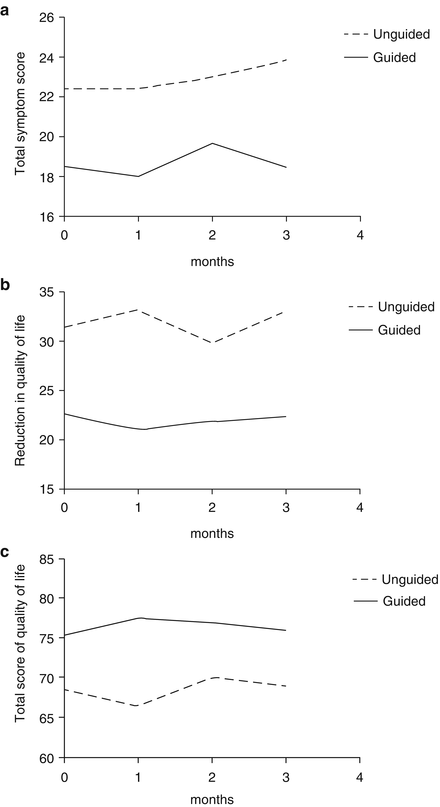
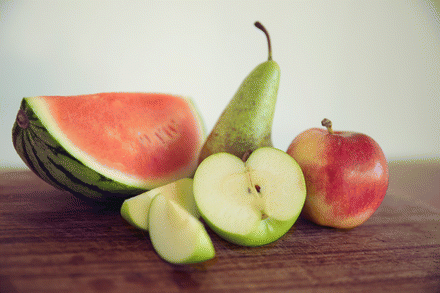
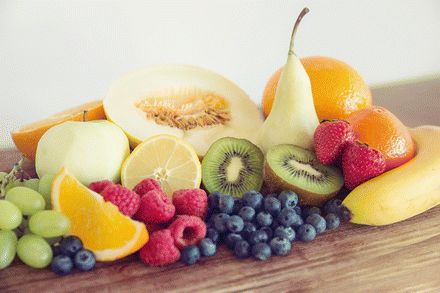
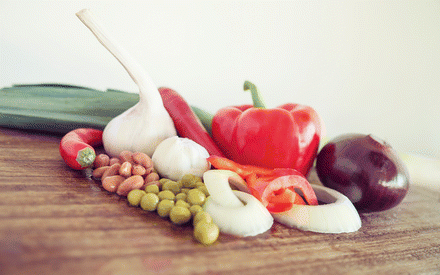
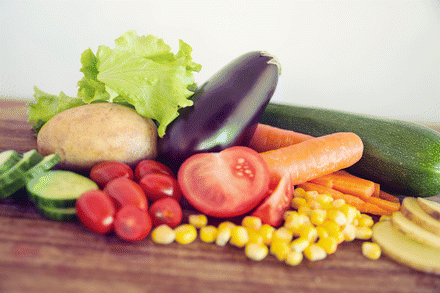
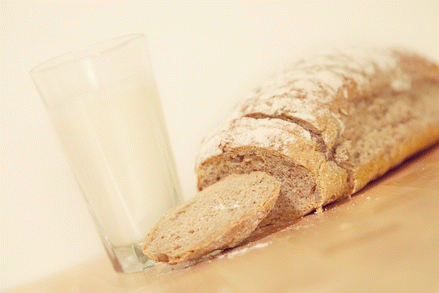

Figure 5.1
The total symptom score according to the Birmingham irritable bowel syndrome Symptom Score questionnaire (a), reduction in the quality of life according to the Short-Form Nepean Dyspepsia Index questionnaire (b), and quality of life according to the Irritable Bowel Syndrome Quality of Life questionnaire (c) in 36 IBS patients without any restrictions in the intake of fermentable oligosaccharides, disaccharides, monosaccharides, and polyols (FODMAPs; unguided), and in 48 IBS patients, who received dietary guidance with restriction of FODMAPs intake (guided). All 84 patients were followed-up over a period of 3 months. Unpublished data
Table 5.1
Alternative foodstuffs with low contents of FODMAPs
Oligosaccharides: fructans and galactans | Disaccharides: lactose | Monosaccharides: fructose | Polyols |
|---|---|---|---|
Spelt and spelt-based products, rice, corn | Lactose-free milk and dairy products, rice milk, hard cheeses | Sweeteners, maple syrup, golden syrup | |
Sweeteners: sugar, glucose, other sweeteners with names not ending in “-ol” | |||
Vegetables: garlic–infused oil, carrot, celery, corn, eggplant, lettuce, bamboo shoots, bok choy, capsicum, green beans, chives, pumpkin, silver beet | |||
Fruits: bananas, blueberries, mandarins, oranges, kiwifruit, grapes, grapefruit, honeydew melon, durian, passion fruit, raspberries, strawberries | Fruits: bananas, blueberries, mandarins, oranges, kiwifruit, grapes, grapefruit, honey-dew melon, durian, passion fruit, rasp-berries, strawberries |

Figure 5.2
An illustration of some of the fruits that are rich in FODMAPs and/or insoluble fiber and should be avoided by irritable bowel syndrome patients

Figure 5.3
Although irritable bowel syndrome patients must avoid some fruits that are rich in FODMAPs, there are many delicious fruits that are poor in FODMAPs and hence that they can eat, as illustrated here

Figure 5.4
Some of the vegetables that are rich in FODMAPs and/or insoluble fiber, and hence should be avoided by irritable bowel syndrome patients

Figure 5.5
There are many vegetables that are poor in FODMAPS and/or insoluble fiber, and therefore can be consumed by irritable bowel syndrome patients, some of which are illustrated here

Figure 5.6




Bread (especially if it contains insoluble fiber) and milk are two of the food items that should be avoided by irritable bowel syndrome patients, since they are rich in FODMAPs
Stay updated, free articles. Join our Telegram channel

Full access? Get Clinical Tree






